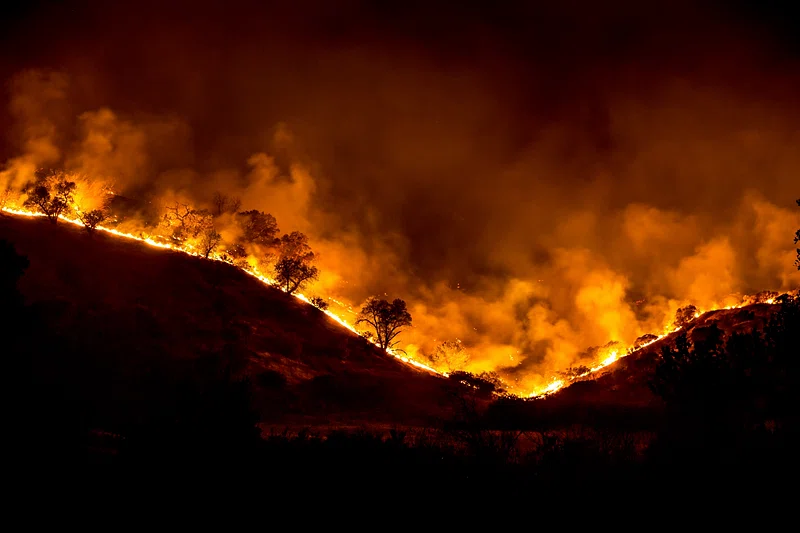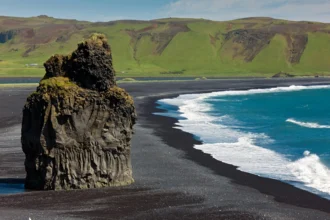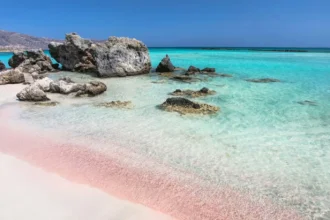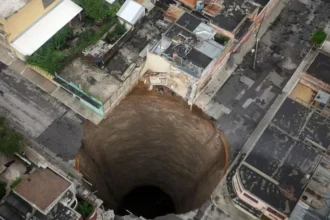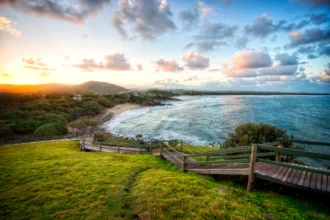Greece is in the grip of a severe wildfire crisis. High temperatures and dry conditions have triggered blazes across the country, forcing evacuations on islands like Chios and damaging homes in regions like Peloponnese.
Emergency teams are stretched thin, and officials are urging calm and caution.
Fires Erupt Across the Region
Over the past few days, wildfires have spread across mainland Greece and several islands. Flames have reached close to populated areas, pushing authorities to evacuate villages.
One rescue involved ferrying stranded visitors off a beach near the fire line.
Crews from Greece, backed by dozens of firefighting aircraft and support from EU countries, are focusing on keeping communities safe and controlling the spread.
These fires come at a time when Greece is also battling a record heatwave. Temperatures throughout the summer have stayed well above average, leaving forests and farmlands parched and ready to ignite.
The combination of high heat, strong winds, and dry terrain make containment difficult even with experienced crews and aerial water drops.
Lives Disrupted and Landscape Damaged
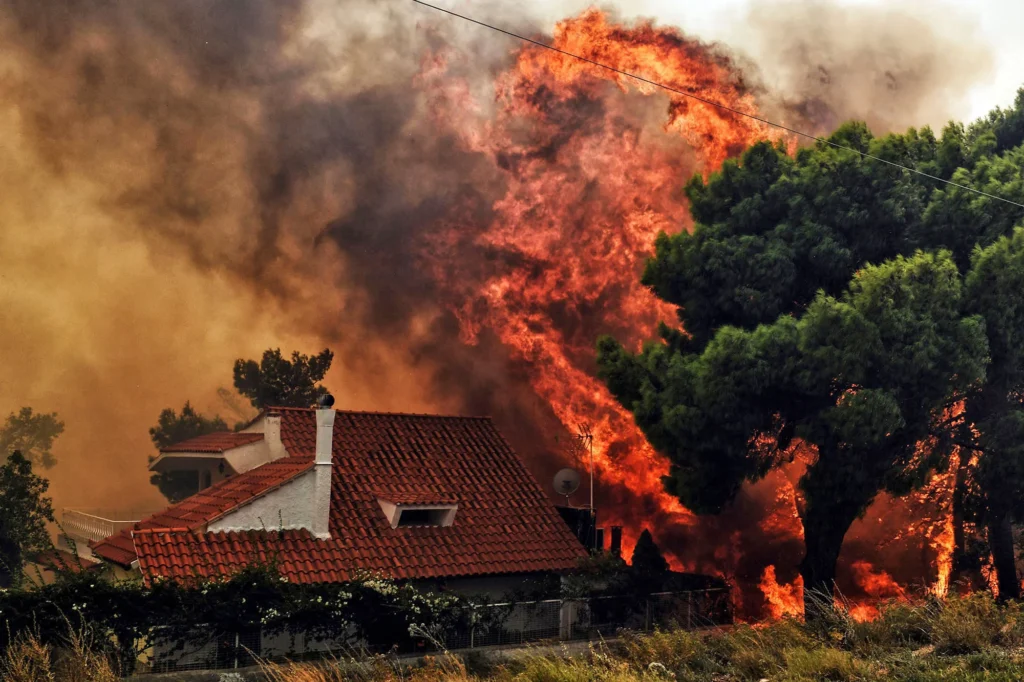
The fires are exacting a heavy cost. On some islands, agricultural land, olive groves, and homes have been destroyed. Crops and livelihoods of local farmers are at risk.
On the mainland, fires have advanced toward residential areas in places like northern Attica and the outskirts of Athens.
Smoke and heat have strained hospitals, prompting health advisories for vulnerable populations.
Tourist zones are not immune. On the island of Zakynthos, fires forced hotel and village evacuations.
Tourists were moved to safety by road buses and coastal vessels. Most airlines are still flying, but travel plans remain uncertain, especially for visitors heading to fire-affected areas.
International Response and Firefighting Effort
The Greek government has appealed for help from European partners. Firefighting planes and support personnel have arrived from several EU nations.
International assistance has bolstered water drop operations and helped with containment lines.
Domestically, Greece deployed over 18,000 firefighters this season, supported by police and local volunteers.
Equipment includes helicopters, water-bombing planes, trucks, and bulldozers. Firebreaks are being cut to protect communities.
Crews continue working through the night when winds calm, giving them critical moments to slow the blazes.
Safety Tips for Travelers and Locals
If you are in or heading to Greece, consider the following safety advice:
- Register for emergency messages such as the 112 public alert service.
- Keep your travel documents, medication, and essentials in a ready-to-grab bag.
- Avoid areas marked as high risk or those under evacuation orders.
- Monitor local news and hotel alerts for changes in fire activity.
- Purchase insurance that covers disruptions due to natural disasters.
- Stay hydrated and avoid outdoor activity during peak heat hours.
Staying prepared will make it easier to adapt plans and remain safe if the situation changes rapidly.
Why These Fires Are Intensifying
This wildfire season is not an isolated event. Over the past few years, Greece has faced repeated wildfire outbreaks.
In 2021, northern Euboea burned, displacing residents and destroying forests. Earlier in 2024, fires near Athens caused damage to homes and greenery.
These events reflect a broader trend linked to climate change, drought, and temperature extremes.
Experts say that in a warming world, fire prevention and rapid response systems need to improve.
Early detection sensors, better land and forest management, and stronger infrastructure for evacuation all play a role in keeping people safe.
A Way Forward
Greece is asking for fire prevention help from the EU and investing in infrastructure projects. These include aerial detection systems, remote fire monitoring, and safer building codes in fire-prone zones.
Long-term efforts include restoring burned landscapes and planting fire-resistant vegetation.
For now, the focus remains on protecting communities and supporting firefighting teams. The road to recovery will take time and cooperation.

